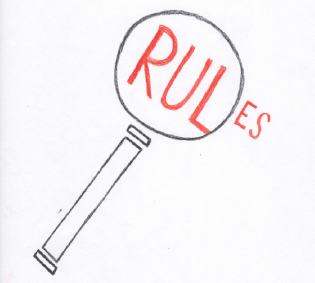After last spring’s disciplinary rule changes regarding drugs and alcohol, Dean of Students Amie Creagh has put forth increased efforts to make the internal decision processes of the Disciplinary Committee (DC) more accessible and transparent to the community by organizing information sessions each term.

At a recent DC information session, Ms. Creagh covered how a DC committee hearing works and gave a general review of disciplinary decisions from this academic year in hopes of elucidating the facts associated with each case and generating more student trust of the DC.
The DC committee is comprised of the Dean of Students, Ms. Creagh, who chairs the committee and presents the case, a Class Dean, three students, and two faculty members. The committee convenes when students are suspected of violating a major school rule. The students have the option of selecting community members to serve as their advocate during the hearing.
After the Committee has established the facts of the case by speaking with the student and anyone else involved, the students and advocates leave the hearing. After evaluating the evidence, the Committee decides by majority vote whether a major school rule has been broken. If a school rule is found to be broken, possible responses include probation, suspension, enrollment review, and expulsion. It is important to note that the Dean of Students only votes in the case of a tie, which, according to Ms. Creagh, has rarely occurred in DC hearings.
At the information session, Ms. Creagh summarized the cases that occurred from September 2015 to December 2015, including only a brief description of the events and the responses in order to protect student privacy.
As Ms. Creagh’s presentation at the meeting drew to a close, students asked questions about why Ms. Creagh had decided to implement these sessions. Ms. Creagh responded that she “wanted to be seen as trusting in students” and “as being fair and not hiding things from kids.” She continued that she “cares about students and feels like they are mature enough to have a candid conversation about all the very complicated factors that go into crafting a response for a student when he or she makes mistakes.”
She emphasized that the purpose of the DC is to not simply “punish” students for a particular mistake, but to allow them to think through their actions and learn from their mistakes. “I think mistakes are wonderful things,” she said, “If you respond to them correctly [and] if you have good guidance and support.”
Understanding that there were rumors and confusion about the disciplinary process, Ms. Creagh asserted that her goal was to let “every Deerfield kid have the opportunity to get as much information as possible about the DC workings” as well as “to dispel and demystify some rumors that lead to students feeling that it’s unfair, rigged, and not representative of school values.”
She hopes “to see greater fact ripple through community than the fiction that has permeated after most other hearings.” She closed the session by asking the students about what they thought and said she hopes to “keep at this” and is “wide open to guidance and advice about how best to equip students with facts, so that when they make judgments about how DC works, it’s at least based on reality.”

